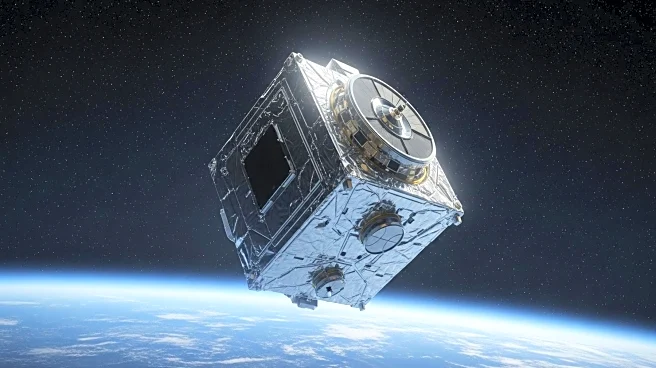What is the story about?
What's Happening?
Germany is significantly increasing its investment in military space capabilities, with a €35 billion commitment over the next five years. This move, announced by Defense Minister Boris Pistorius at Germany's third Space Congress, aims to counter perceived threats from Russian and Chinese technologies. The investment will focus on enhancing Germany's space defense infrastructure, including the development of offensive space capabilities for the first time. This initiative is part of a broader European trend of increasing defense spending, with the European Council reporting a 19% rise in defense budgets in 2024. Germany's strategy includes improving space domain awareness, hardening systems against jamming and spoofing, and developing 'guardian satellites' for deterrence.
Why It's Important?
Germany's investment in space defense marks a significant shift in its military strategy, reflecting the growing importance of space in national security. This move is crucial for maintaining technological parity with global powers like Russia and China, who have been advancing their space capabilities. The investment is expected to enhance Germany's ability to protect its satellites and other space assets, which are vital for communication, surveillance, and defense operations. This development also highlights the increasing militarization of space, as countries seek to secure their interests in this strategic domain. For the European defense industry, this investment could lead to new opportunities in space technology and infrastructure development.
What's Next?
Germany's focus on space defense is likely to lead to further collaborations with European and NATO allies to enhance collective security in space. The centralization of Germany's military space functions within the Bundeswehr could streamline operations and improve response capabilities. As Germany develops its space infrastructure, it may also influence other European nations to increase their investments in space defense. The geopolitical implications of this shift could lead to increased tensions with countries like Russia and China, who may perceive these developments as a threat to their own strategic interests.















